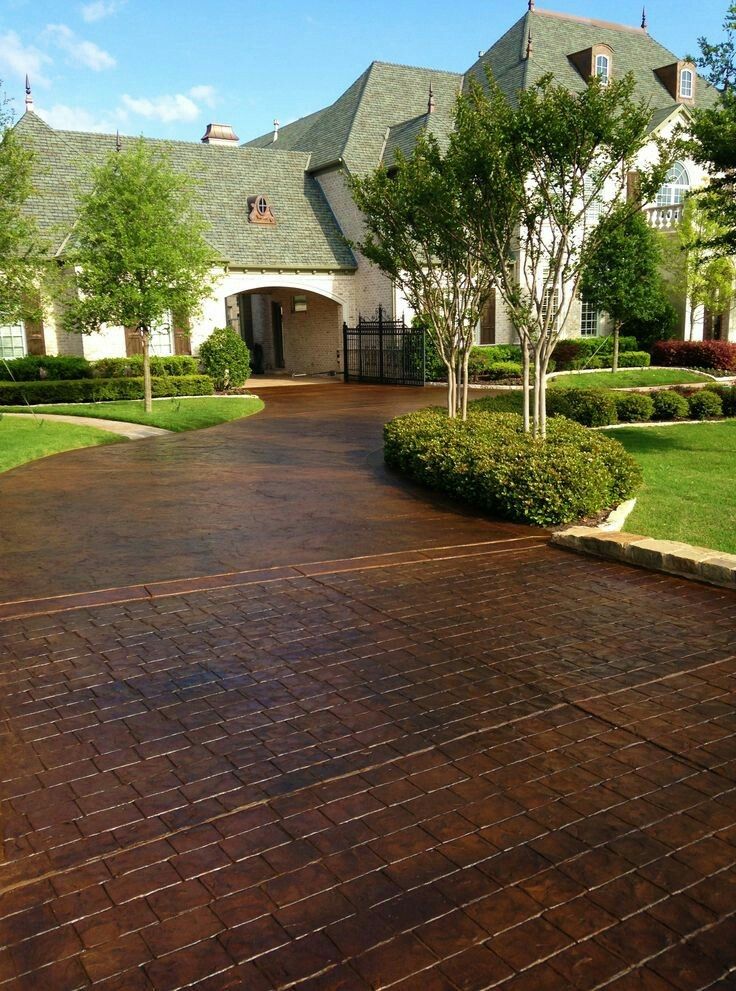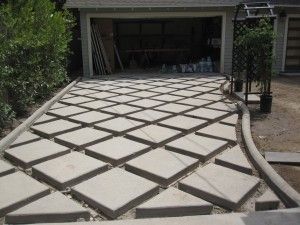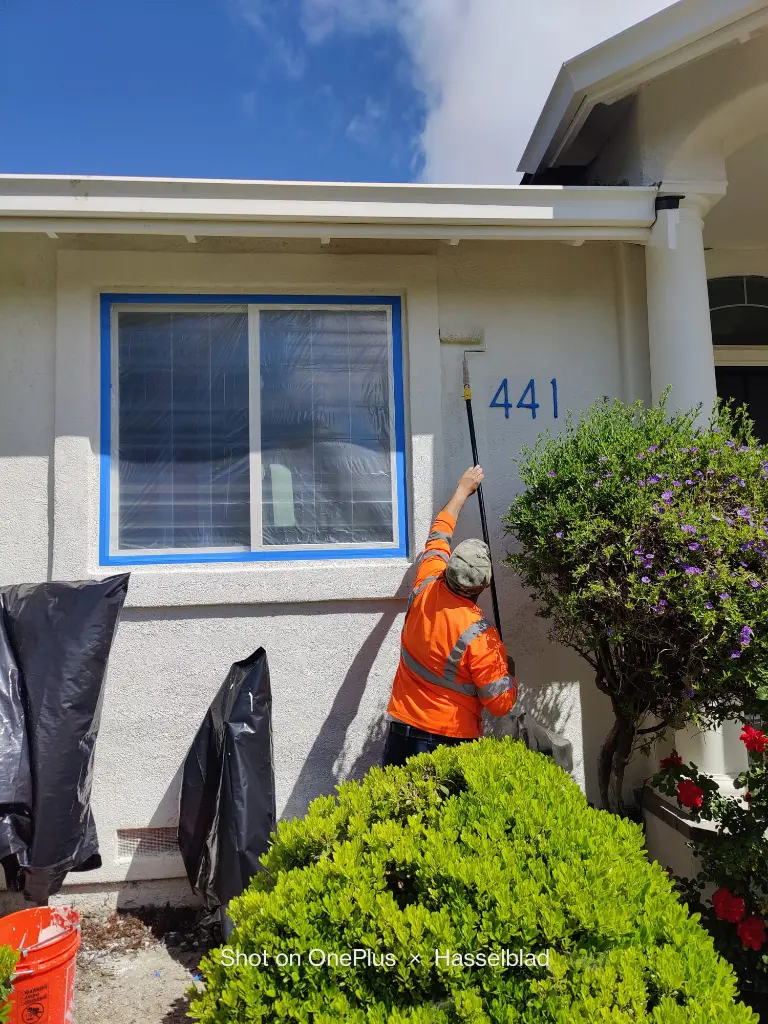What are Concrete Driveways?
Concrete driveways are paved surfaces that provide a smooth and durable path for vehicles and pedestrians from the street to a home or commercial property. They are a popular choice for many property owners due to their longevity, minimal maintenance requirements, and versatility in design and appearance. Concrete driveways are constructed using cement, water, and aggregates like sand, gravel, or crushed stone.

Ideal Thickness for Concrete Driveways in many matters:
The Basics of Concrete Driveways
Concrete is a mixture of water, cement, and aggregates. Its strength and durability make it an ideal material for driveways. Unlike asphalt, which needs to be resealed every few years, a well-maintained concrete driveway can last up to 30 years or more. The question that often arises is: how thick should a concrete driveway be? The answer largely depends on various factors, including soil conditions, the type of vehicles that will use the driveway, and local weather patterns.
Standard Thickness for Residential Driveways
For most residential driveways, the standard thickness is 4 inches. This depth provides a good balance between strength and material cost. When properly installed and maintained, a 4-inch thick concrete driveway can support the weight of standard vehicles, such as cars, SUVs, and small trucks.
Considerations for Heavier Vehicles
If you anticipate frequent traffic from heavier vehicles, such as RVs, large trucks, or commercial vehicles, how thick should a concrete driveway be to accommodate this added weight? In such cases, it’s advisable to increase the thickness to 5 or even 6 inches. This additional thickness provides the strength and durability needed to support heavier loads.
The Role of Soil Conditions
The type of soil upon which the driveway will be laid also plays a crucial role in determining its thickness. A thicker slab may be required if the underlying soil is soft or prone to shifts, such as sandy or loamy soils. In contrast, if the ground consists of compacted clay or gravel, a standard 4-inch thickness should suffice. Always consult a local contractor or engineer who can assess soil conditions and recommend how thick a concrete driveway should be for your specific location.
Climate and Weather Patterns
Climate can significantly influence the longevity and performance of a concrete driveway. In regions with frequent freeze-thaw cycles, the expansion and contraction of water as it freezes and thaws can lead to cracking. For such climates, a thicker driveway can offer greater resistance to these pressures. Again, consulting local experts can provide insights into how thick a concrete driveway should be based on weather patterns in your area.
Reinforcement Options
Beyond just the thickness, homeowners can also consider reinforcing their driveways with materials like steel mesh or rebar. Reinforcement, especially with adequate thickness, ensures the concrete can handle heavier loads and resist cracking over time.
The Importance of Proper Concrete Curing
Once you’ve determined how thick a concrete driveway should be, it’s crucial to pay attention to the curing process. Proper curing ensures that the concrete reaches its maximum strength and durability. This involves keeping the freshly poured concrete moist for at least a week, which allows the cement particles to hydrate fully and solidify. Inadequate curing can weaken the concrete and make it more susceptible to cracking.
Cost Implications of Thickness
It’s important to note that while a thicker driveway provides more strength and durability, it also comes at a higher cost. More concrete means higher material costs and possibly more labor expenses. When determining how thick a concrete driveway should be, balancing the upfront cost with the long-term benefits is essential.
Surface Finishes and Aesthetics
Thickness isn’t the only consideration for homeowners. The surface finish can add aesthetic appeal and functionality to a concrete driveway. Options include broom finishes for slip resistance, stamped patterns for decorative flair, and colored concrete to match home exteriors. A well-finished driveway can boost curb appeal and property value regardless of thickness.
Maintenance of a Concrete Driveway
Even after determining the right thickness, maintenance plays a pivotal role in the longevity of your concrete driveway. Regular cleaning, sealing every few years, and promptly addressing minor cracks can significantly extend your driveway’s life. This ensures that the investment you make in determining how thick a concrete driveway should be pays off in the long run.
The Role of Professionals
While many online guides and DIY tutorials can guide homeowners, there’s an undeniable advantage to hiring professionals. Experienced contractors will deeply understand local soil conditions and climate factors and be better equipped to advise on how thick a concrete driveway should be for individual situations.
Concrete driveways are a valuable addition to any home, combining functionality with aesthetics. The thickness of the driveway plays a pivotal role in its performance and durability. By taking into account the various influencing factors and consulting with professionals, homeowners can ensure they make the best decision for their property. Remember, it’s not just about the initial installation but the long-term benefits and the peace of mind that comes with a well-executed project.
Environmental Impact and Sustainable Practices in Concrete Driveway Construction
In today’s environmentally-conscious world, it’s essential to consider the ecological impact of our choices. Concrete, while incredibly durable and long-lasting, does have an environmental footprint. From the extraction of raw materials to the production of cement and the transportation of materials, several stages can affect our planet. So, when contemplating how thick a concrete driveway should be, it’s also worth considering how we can minimize its environmental impact.
Eco-Friendly Concrete Mixes
Advancements in concrete technology have led to the development of more sustainable and eco-friendly mixes. These mixes often incorporate recycled materials such as fly ash, slag cement, and recycled aggregate. Using these substitutes can significantly reduce the carbon emissions associated with traditional concrete production.
Permeable Concrete
Another consideration for homeowners is the use of permeable concrete. This type of concrete allows water to pass through its surface, helping to reduce runoff and improve groundwater recharge. Especially in urban areas where flooding is a concern, permeable concrete can be a game-changer. While the permeability might affect the decision on how thick a concrete driveway should be, the environmental benefits can make it worthwhile.
Local Sourcing
Transporting materials over long distances can add to the carbon footprint of your concrete driveway. You can reduce transportation-related emissions by choosing a contractor who sources local materials. Local sourcing also supports local businesses, fostering community economic growth.
Longevity Equals Sustainability
Finally, remember that the longer your driveway lasts, the more sustainable it is. Investing in a thickness that ensures durability and longevity minimizes the need for replacements or major repairs in the future. This saves resources and reduces the environmental impacts associated with frequent reconstructions.
By considering these environmental aspects alongside the technical details of how thick a concrete driveway should be, homeowners can make practical and eco-friendly choices.
Benefits of Concrete Driveways
- Durability: Concrete driveways are known for their strength and longevity. They can last up to 30 years or more when properly installed and maintained. This makes them a cost-effective long-term solution for both residential and commercial properties.
- Low Maintenance: Concrete driveways require minimal maintenance. Regular cleaning, occasional sealing, and prompt repair of minor cracks can keep a concrete driveway in good condition for many years.
- Versatility: Concrete driveways can be customized to suit various aesthetic preferences. They can be stamped, stained, or dyed to mimic the appearance of natural stone, brick, or other materials. Additionally, homeowners can choose from a wide range of colors and finishes to complement their property’s exterior.
- Increased Property Value: A well-designed and properly maintained concrete driveway can enhance a property’s curb appeal and increase its value. A concrete driveway is a worthwhile investment that can provide both functional and aesthetic benefits.
- Eco-Friendly Options: Concrete driveways can be constructed using eco-friendly materials like recycled aggregates or permeable concrete. Permeable concrete allows water to seep through the surface, reducing runoff and promoting groundwater recharge.
Installation Process
- Site Preparation: The first step in installing a concrete driveway is to prepare the site. This involves excavating the area, removing existing pavement or debris, and leveling the ground.
- Forming: Wooden or metal forms are placed around the perimeter of the driveway area to create a mold for the concrete. The forms help shape the driveway and prevent the concrete from spreading.
- Base Layer: A compacted base layer of gravel or crushed stone is laid to provide stability and support for the concrete slab.
- Pouring Concrete: The concrete mixture is poured into the forms, filling the entire area. The surface is then leveled and smoothed using various tools.
- Finishing: Depending on the desired appearance, the surface may be finished with a broom texture, stamped pattern, or other decorative elements.
- Curing: The concrete can cure for several days and should be kept moist to prevent cracking. The curing process allows the concrete to reach its maximum strength and durability.
- Sealing: After curing, the driveway is sealed to protect it from moisture, stains, and other environmental factors.
Concrete driveways are a practical and attractive solution for many properties. Their durability, low maintenance, and versatility make them popular among homeowners and business owners.
Determining how thick a concrete driveway should be requires consideration of various factors, including vehicle weight, soil conditions, and local climate. While a 4-inch thickness is standard for most residential applications, individual circumstances may necessitate a thicker slab. Always consult with local experts and prioritize quality installation to ensure the longevity and durability of your concrete investment.
By understanding the intricacies of concrete driveways, homeowners can make informed decisions that ensure their driveways look great and stand the test of time.
Choosing Rhino Builders for Your Concrete Needs

Selecting the right team for your concrete project is vital. Based in Danville, CA, Rhino Builders offers expert concrete services, from driveway installations to patio setups and foundational repairs. With over five years in the industry, we prioritize quality and customer satisfaction.
Trust Rhino Builders for durable, aesthetically pleasing results and comprehensive guidance throughout your project. Reach out to us for top-notch concrete service and a free quote. Your concrete vision is our mission.







